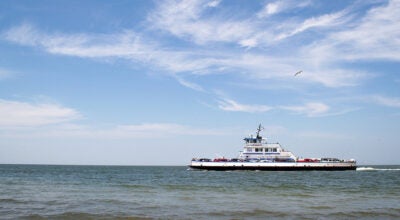Balancing act: Rainy-day funds often burdened with restrictions
Published 4:51 pm Saturday, June 6, 2015
To an uneducated eye, the city’s $8.5 million fund balance — or “rainy-day” fund — available at the end of the 2014-2015 fiscal year may seem to be a huge financial reserve available to the city.
Even the N.C. General Assembly could be taking such a view, according to some officials.
And that uneducated eye, to some degree, could be seeing things correctly. But like beauty being in the eye of the beholder, uses of a rainy-day fund depend on how that fund is looked at by those who use it or those who have a say over how that fund is used. There has been discussion at the state level that suggests counties and municipalities could use their fund balances (in excess of the 8-percent minimum balance requirement imposed by the Local Government Commission) to cover costs currently or previously paid for by the state.
“Using the 8 percent fund balance metric as a target, rather than an absolute minimum, may have devastating effects on the fiscal health of North Carolina counties,” reads an April 2011 document from the N.C. League of Municipalities.
City Manager Brian Alligood has informed the City Council about the discussion at the state level.
“The concern that I expressed to Council was that when the City has funds in its fund balance that are needed for specific reasons, such as vehicle replacement or facilities maintenance, those funds need to be specifically designated so that they do not appear to just be excess idle funds,” Alligood wrote in an email. “This is why the Council approved setting up the vehicle replacement and facilities maintenance funds. In the past, the General Assembly has made comments regarding the amount of money in the fund balances of local governments and that those balances appear to be large. This may give the false impression that revenue sources can be reduced and there will not be an impact on the local government’s operations.”
Take the city’s $8.5 million fund balance and give it a close look. $1.88 million of it is unavailable because of restrictions placed on those funds. Those restrictions are put in place by other governments, creditors, grantors and other entities that provide money to the city. For example, the N.C. General Assembly could require the city set aside a specific amount of money to fund a mandated program, or the source of grant funding may dictated how and when that funding may be spent.
Removing the restricted $1.88 million from the overall fund balance leaves $6.64 million in the rainy-day fund. Of that $6.64 million, $6.24 million is unassigned. The remaining $406,109 is restricted, committed or assigned to specified services, programs or projects.
Committed funds are those allocations used for specific purposes as dictated by action of the local governing body, such as the Washington City Council. Assigned funds are those allocations constrained by the local government’s intent but are not restricted or committed. Unassigned funds are those allocations that do not fall into any other category.
Of the unassigned $6.24 million, the city has identified $4.35 million for specific uses under its fund-balance policy. In the proposed budget for the upcoming fiscal year, the city allocates $2.35 million as a two-month operating reserve and $2 million for expenses related to recovering from a natural disaster such as a hurricane. The allocations do not mean the city must spend that money, but it’s there in case it’s needed.
Subtracting the $4.35 million in reserve funds from the $6.24 million of unassigned money leaves $1.89 million for assignment under the city’s fund-balance policy. A recent decision by the City Council to allocate $1,233,937 for vehicle replacement and $500,000 for facility maintenance (a total of $1,733,937) reduces the unassigned fund balance to $156,000.
Should a fiscal crisis arise or other needs develop, the City Council can re-allocate all or part of the unassigned $6.24 million to meet that crisis or needs.






